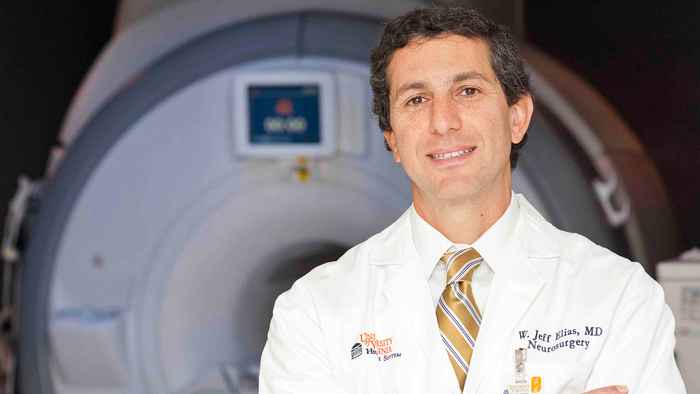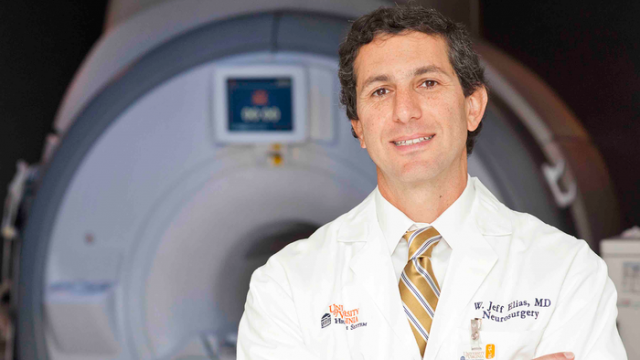
The U.S. Food and Drug Administration has approved an innovative incisionless surgery for debilitating Parkinson’s disease that offers an outpatient alternative to invasive deep-brain surgery.
Insightec’s Exablate Neuro ultrasound device was successfully tested at the University of Virginia health system, which is now one of only 37 U.S. medical centers able to offer the procedure.
According to the Parkinson’s Foundation, about 1 million people in the U.S. live with Parkinson’s, which causes difficulties with mobility, as well as rigidity and dyskinesias, which is involuntary movements or tremors. Current treatments involve deep-brain surgery and drugs that have not been effective in all patients.
“This FDA approval of focused ultrasound pallidotomy allows for more treatment options if medications become ineffective or cause disabling side effects,” said Dr. Jeff Elias, a neurosurgeon and pioneer in focused ultrasound. While it’s not a cure, Elias said the treatment offers a “less invasive option for patients suffering with medication-induced dyskinesia or severe motor deficits.”
An ordinary pallidotomy involves an electrical probe being inserted into the brain and heated to destroy a part of the subcortical globus pallidus structure. Side effects include depression, memory loss, blurred vision and slurred speech, as well as diminished cognitive ability in completing various tasks.
The new outpatient treatment doesn’t require incisions or opening the skull. By focusing ultrasound inside the brain, the method uses sound waves to interrupt misfiring brain circuits. During the procedure, physicians use magnetic-resonance imaging (MRI) to examine the brain before making permanent changes.
“It is still very early stage for a new procedure, so experience and technological advances will increase the safety and effectiveness,” Elias said.
Elias conducted his first clinical trial of the technology on a volunteer exhibiting a common movement disorder known as essential tremor. He has teamed up with Dr. Binit Shah in advancing focused ultrasound guided by MRI as an approved procedure. This led to FDA approval in 2018 of the technology to treat essential tremor. The FDA has now approved its use for other symptoms of Parkinson’s, including involuntary movements and rigidity.
Dr. Neal F. Kassell of the Focused Ultrasound Foundation said his organization has long believed the brain can be treated with ultrasound, saying the FDA’s approval is “a huge win for both providers and patients.”
The ultrasound technology also shows promise in treating conditions ranging from breast cancer to epilepsy. Another possible use for it is in penetrating the protective blood-brain barrier to enable new treatments for glioblastoma, a deadly form of brain cancer.
Though the new procedure is likely to be an attractive option for patients, health insurance plans likely won’t cover it right away.
Edited by Richard Pretorius and Kristen Butler
The post FDA Approves Incisionless Ultrasound Brain Surgery For Parkinson’s Symptoms appeared first on Zenger News.




